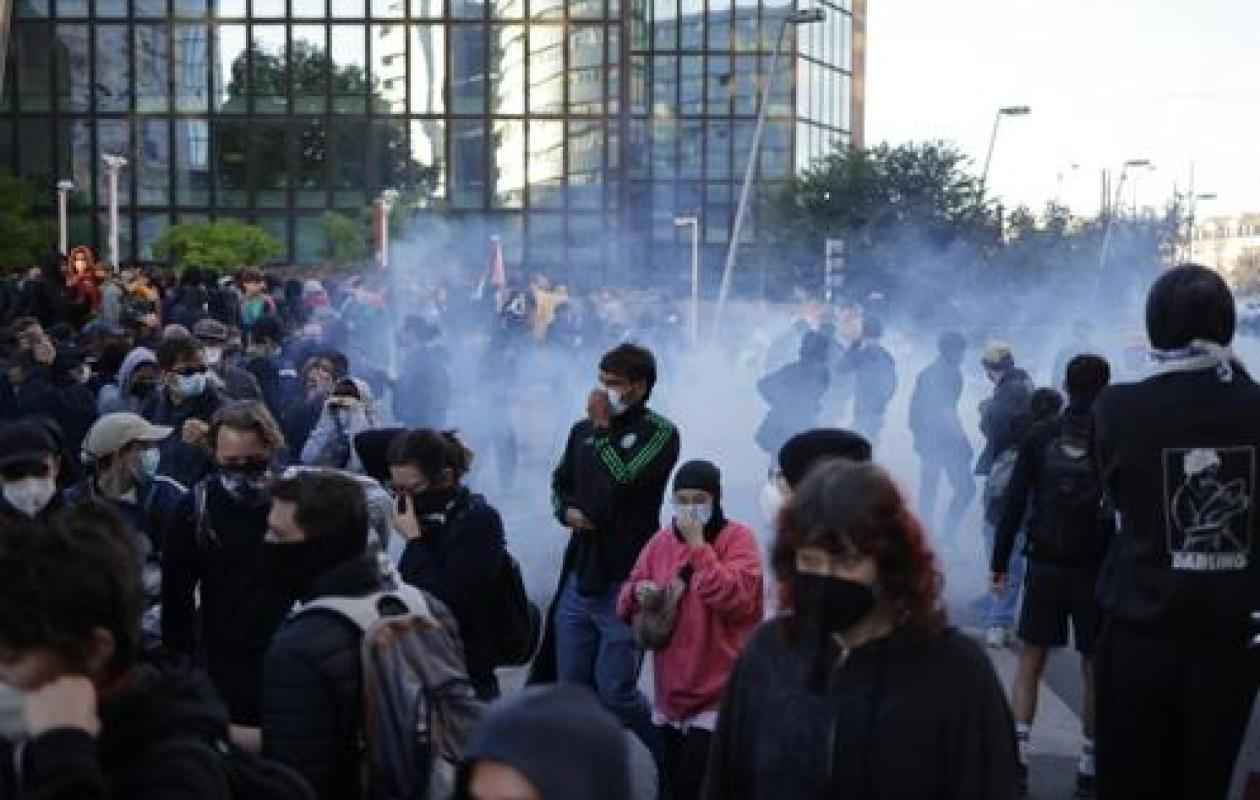Afrique
France: "Black" Thursday of demonstrations to influence the next government
Auteur: AFP
il y a 4 mois
5592 Lectures
0 Commentaires
|
Français
France: jeudi "noir" de manifestations pour peser sur le prochain gouvernement
With schools and transport disrupted, mass protests expected, and plans for shock action, unions have promised a "black day" of strikes and demonstrations across France on Thursday to influence the upcoming budgetary choices of the Prime Minister, who was appointed last week in the midst of a political crisis.
This is the second day of mobilization in eight days, following the "Block Everything" movement on September 10, launched on social media. But Thursday's protest, called by the eight unions united for the first time since June 2023, promises to be much more massive.
Authorities estimate that the more than 250 demonstrations announced could bring together up to 900,000 people across the country. In Paris, the police chief said he was "very concerned" about the presence of numerous rioters at the demonstration planned in the capital, where he expects 50,000 to 100,000 people.
As on September 10, around 80,000 police and gendarmes were deployed across the country, supported by drones, 24 Centaure armored vehicles and ten water cannons.
Law enforcement began to disperse, sometimes using tear gas, gatherings and attempted blockades, such as in Marseille (south) where calls were made on social media to block the headquarters of the shipping company CMA-CGM, owned by billionaire Rodolphe Saadé.
Public transport was disrupted on Thursday morning, particularly in Paris, where most metro and suburban trains will only run during rush hour. National rail and air traffic were largely unaffected.
The outgoing Interior Minister, Bruno Retailleau, spoke of a foiled attempt to "sabotage" a water network in Martinique and of "blockages being resolved" in the Paris region.
- Promised "breakups" -
This mobilization targets the "brutal" budgetary measures (cuts in public services, reform of unemployment insurance, freezing of social benefits, etc.) planned in a 44 billion euro savings plan announced this summer by Prime Minister François Bayrou, in an attempt to reduce France's abysmal deficit (114% of GDP).
His government, combining the centre-right and the right, which was a minority in the National Assembly, was overthrown by the deputies on September 8.
Appointed the following day, his successor, Sébastien Lecornu -- Emmanuel Macron's third Prime Minister since he dissolved the National Assembly in June 2024, the fifth since his re-election in 2022 -- also pledged to reduce the deficit that is weighing down the nation's accounts (114% of GDP), while promising "substantive breaks."
This loyalist of the president has begun a series of consultations with the political parties before forming a government and presenting his program, with a view to completing a draft budget for 2026 as soon as possible.
He also met with almost all the unions, who nonetheless maintained their slogan, hoping for a similar mobilization to those of 2023 against the pension reform, which regularly brought together a million demonstrators, with a peak of 1.4 million.
- "Show of force" -
Sébastien Lecornu's abandonment of the highly controversial abolition of two public holidays wanted by François Bayrou has not calmed the anger.
"None of the catastrophic measures in Mr. Bayrou's museum of horrors have been buried!" Sophie Binet, general secretary of the CGT union, said indignantly on Monday after meeting the new Prime Minister.
"The budget will be decided in the streets," she believes, calling for a "show of force."
Even the CFDT, a union known for being more apt to compromise, is "more motivated than ever to take to the streets," said its general secretary, Marylise Léon, who expects "facts and proof" from the new head of government, and in particular a "need for shared efforts" with the wealthiest.
The 2023 pension reform, which passed through a special procedure without a parliamentary vote, is still in the unions' sights. Sophie Binet has called for its "repeal," while Marylise Léon has called for its "suspension."
Auteur: AFP
Publié le: Jeudi 18 Septembre 2025

Commentaires (0)
Participer à la Discussion
Règles de la communauté :
💡 Astuce : Utilisez des emojis depuis votre téléphone ou le module emoji ci-dessous. Cliquez sur GIF pour ajouter un GIF animé. Collez un lien X/Twitter, TikTok ou Instagram pour l'afficher automatiquement.